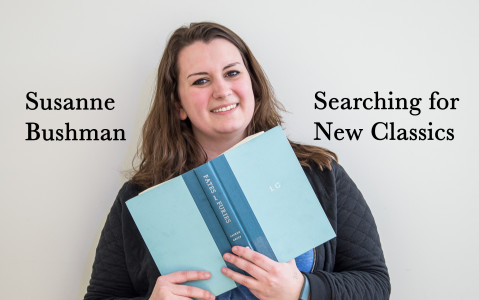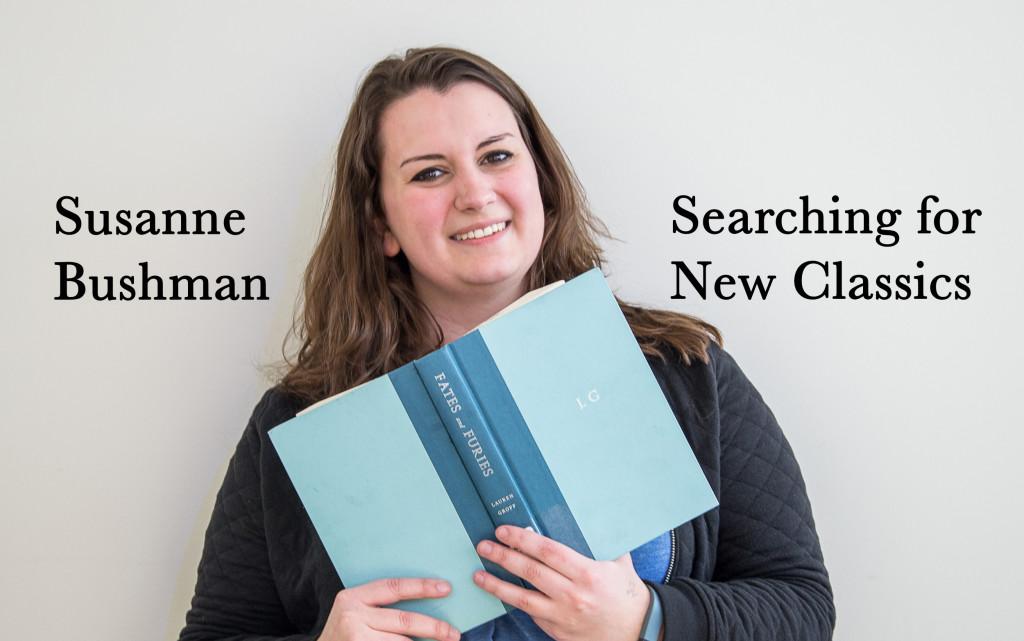Column by Susanne Bushman, bushmans@grinnell.edu

On a college campus where it can seem impossible to read everything our professors assign, the prospect of reading for fun is lost to most of us. Yet, somehow, many of us find enough time to watch hours of Netflix or play every new game trending in the App Store. Surely, if we set our minds to it, we could read books for the simple pleasure of reading.
Don’t get me wrong, I feel the pull of a computer’s warm glow. We are living in what many call the Golden Age of Television, after all, and this year put out an amazing crop of movies. But as someone who tries to keep up with the goings on in the publishing world, I’ll say that new books deserve some of your leisure time and I am setting forth in this bi-weekly column to share what I think are books worth reading.
My first suggestion is “Fates and Furies” by Lauren Groff. I’m certainly not the first person to comment on the beauty and sophistication of this novel. “Fates and Furies” was shortlisted for the National Book Award and listed many times as a “Best Book of 2015.” Divided into two parts, the novel shows two sides of a marriage. Though the topic—the intricacies of married life—certainly isn’t new fodder for writers, Groff’s characters and exquisite writing make the whole thing fresh.
The couple at the center of the story, Lotto and Mathilde, meet at the very end of their college career and marry in a matter of weeks. The first part of the novel, labeled “Fates,” comes from Lotto’s perspective and portrays a charmed marriage, seeming to be blessed by fate. Lotto, born to wealth and privilege, loves his wife above all else, saying, “In a vision, he saw the sea rising up to suck them in, tonguing off their flesh and rolling their bones over its coral molars in the deep. If she were beside him, he thought, he would float out singing.”
Their life together is as dramatic as one of the plays Lotto writes, and Mathilde is the perfect leading lady, never outshining her husband but helping him to uncover his greatness. This first vision of Mathilde is key to the switch to her perspective that takes place in the second part of the novel, labeled “Furies.” Mathilde gives not just a different perspective on Lotto’s story, but a different tale entirely. Readers discover, as Groff says, “Marriage is made of lies. Kind ones, mostly. Omissions. If you give voice to the things you think every day about your spouse, you’d crush them to paste. She never lied. Just never said.” Lotto’s version of their entire marriage becomes a beautiful story, but not quite what really happened. Mathilde’s clearer vision brings with it hard truth and a darkness around the edges of their fated marriage.
The intricacy of the plot, however, is in many ways second to the beauty of Groff’s prose, lightly interspersed with bracketed interventions of a third voice in the narrative, reminiscent of Virginia Woolf’s “To The Lighthouse.” (This is unsurprising, because Groff acknowledged in an interview with the Atlantic that “To the Lighthouse” contains her favorite passage in all of literature.) “Fates and Furies” is a book where choosing a favorite line is impossible, and every word seems precisely chosen.
The narrative construction of this novel brings up a question of what it means to really know someone. At one point in the novel, Groff writes, “Paradox of marriage: you can never know someone entirely; you do know someone entirely.” Certainly, to know someone entirely is quite the endeavor and not one on which to embark lightly, but in “Fates and Furies,” and in the case of Lotto and Mathilde, while you don’t need to know someone entirely to love them, secrets can take on a life of their own. While few people our age have spouses, we all have people we love. If “Fates and Furies” does nothing else, it reminds us that the world looks completely different through another set of eyes, with another history, even if you think you’re watching the same thing.
—Susanne Bushman is a Copy Editor for The S&B.




























































